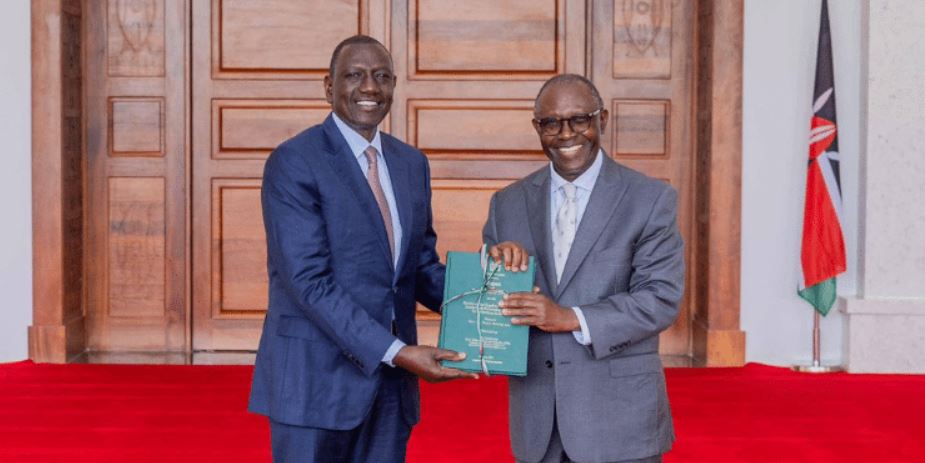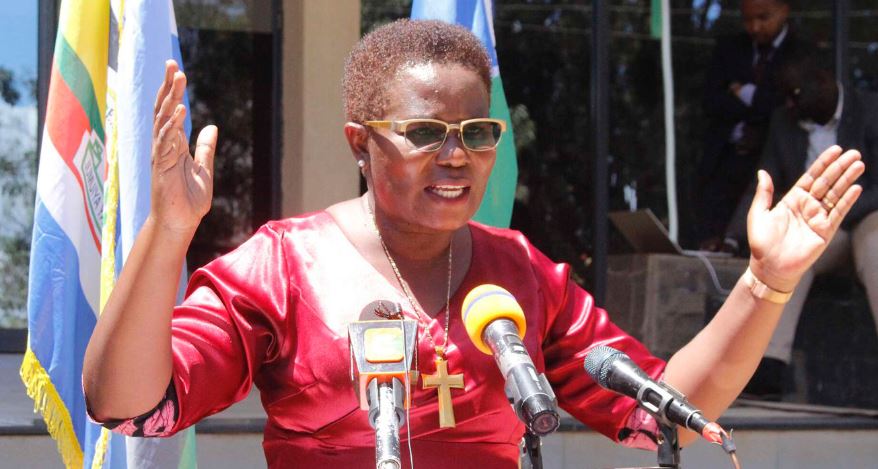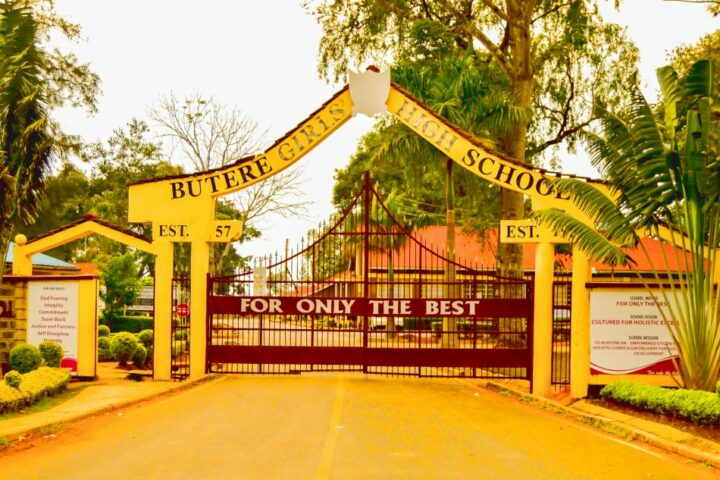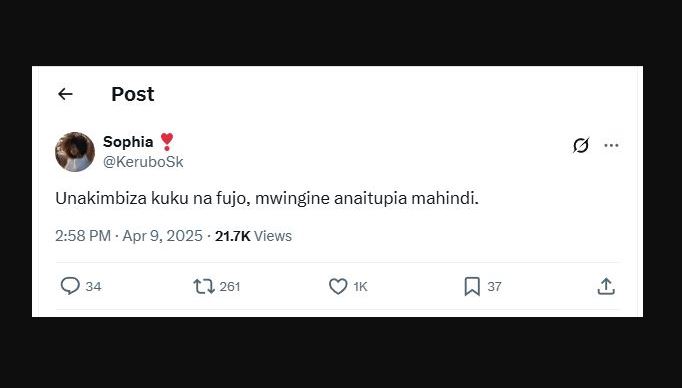 On Tuesday, July 30, 2024, President William Ruto received the report from the Presidential Task Force on the Review of the Legal and Regulatory Framework Governing Religious Organizations.
On Tuesday, July 30, 2024, President William Ruto received the report from the Presidential Task Force on the Review of the Legal and Regulatory Framework Governing Religious Organizations.
The task force, led by former Gachoka MP and former NCCK Secretary-General Mutava Musyimi, delivered its comprehensive report to President Ruto, as announced by State House.
The government plans to implement strict new regulations on religious institutions based on these recommendations, which were prompted by the Shakahola massacre.
President Ruto emphasized the need to protect religious freedom while preventing its misuse to harm Kenyans.
“We will continue to safeguard and protect the freedom of religion, but at the same time mitigate its potential abuse to harm Kenyans,” Ruto said.
The task force’s recommendations tackle the challenges and gaps in the current policy and legal frameworks, adhering to the Terms of Reference (TORs). These proposals seek to balance the fundamental freedoms of religion and association with public interest, safety, welfare, and constitutional protections.
After receiving the report, President Ruto stated that the government will continue to safeguard and protect the freedom of religion and worship. He pledged to carefully review the report, consider its recommendations, and take steps that will not compromise the freedom of worship and religion in the country.
“We are very proud of our religion; we are very proud that we are a God-fearing nation. We have had terror attacks at the US Embassy (1998), Westgate (2013), Garissa University (2015) and Dusit Hotel (2019). But what we recently witnessed at Shakahola was the biggest attack not only on religion but also on our identity as a nation that professes faith in God. This is why I set up this taskforce,” he said.
Taskforce Recommendations
The Presidential Task Force on the Review of the Legal and Regulatory Framework Governing Religious Organizations has recommended establishing the Religious Affairs Commission.
The task force has also developed the Draft Religious Organizations Bill 2024 and the Draft Religious Organizations Policy to support and institutionalize the report’s recommendations.
The 14-member team proposed several significant measures, including re-registering all religious institutions under rigorous vetting procedures. These measures aim to uphold religious freedom while safeguarding Kenyan citizens from potential harm.
The report suggests that the Registrar of Religious Organizations should have the authority under the proposed Religious Organizations Bill to deregister and publicize individuals and groups associated with religious extremism, cults, and occult practices.
Other key proposals include enacting a specific statute to clarify legal personality, registration requirements, and address crimes or offenses committed under the pretext of religion. The task force also recommended establishing a Religious Affairs Commission to oversee religious organizations in Kenya under the new statutory framework.
The report advocates for a hybrid model of regulation for religious organizations, combining self-regulation with government oversight, in line with the Constitution and existing laws. It also suggests amending the Kenya Information and Communication Act (KICA) and other statutes to enhance the regulation of religious content in media.
Additionally, religious leaders will need to meet educational prerequisites and standards set by registered umbrella bodies, focusing on competence and conduct. The task force also proposed updating the basic education curriculum to promote religious tolerance and educate the Kenyan public about the risks of religious extremism.
The recommendations will undergo monitoring, evaluation, and reporting to ensure the proper implementation of the policy framework.
‘Next Steps’
President Ruto expressed gratitude to the task force for incorporating the ideas and perspectives of many Kenyans into the report.
“We will take the next steps to ensure that the excellent work you have done translates into protecting freedom of religion, safeguarding places of worship, and ensuring that this freedom is coupled with protection against those who misuse religion for personal gain,” the President said.
He acknowledged that vulnerable groups often face abuse within some religious organizations and emphasized that the government has established mechanisms to improve the lives of Kenyans.
“I agree with you, Chairman (Rev. Mutava Musyimi), that poverty makes people susceptible to religious abuse. Therefore, it is crucial that we support those who are vulnerable in our society,” President Ruto added.








